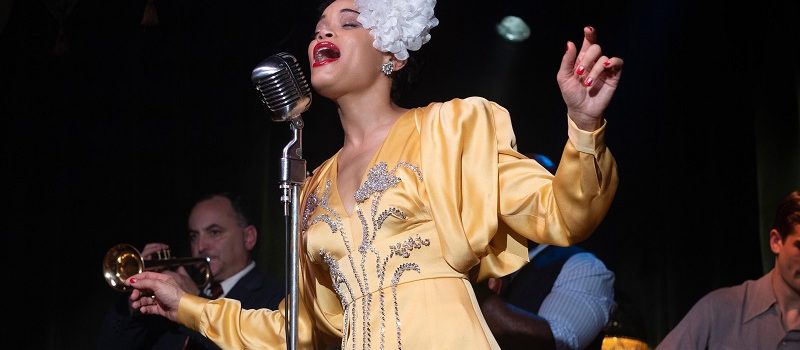One of my biggest pet peeves in cinema is when a biopic doesn’t work at its highest capacity. It’s not like Hollywood producers are lining up to remake biographies. Hulu’s The United States vs. Billie Holiday is a mixed bag of goodness melded with a film that never quite understands what it is seeking to accomplish.
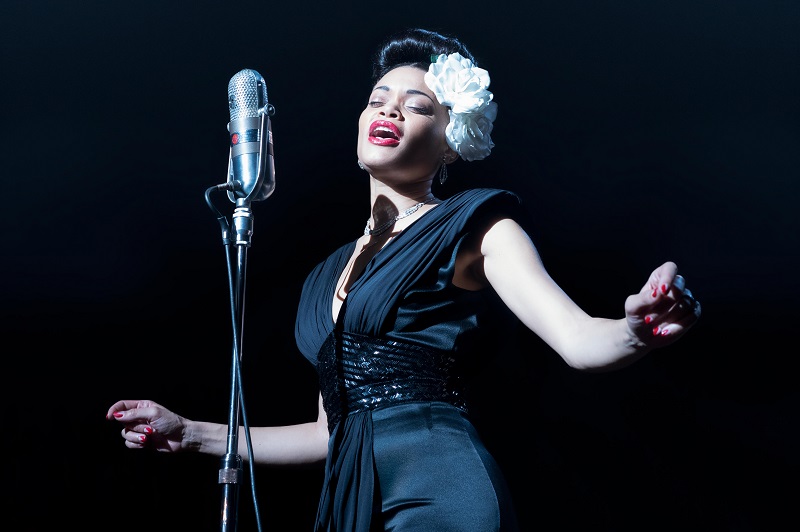
Director Lee Daniels, an incredibly gifted filmmaker (The Butler, Precious) has made a smart choice by bringing Holiday’s life to the silver screen by showcasing a certain period of her life that is emblematic of her entire existence. The storyteller wisely chose to zero in on a particular period of the iconic singer’s life. Through exposition and her interactions with other characters, actress Andra Day—who is mesmerizing as Holiday—tells us everything we need to know about the chanteuse.
Too often biopics bite off more than they can chew and a dazzling performance by the lead is almost wasted on a film that seems to go on and on and on… For example, Tom Hiddleston blew us away as Hank Williams, but I Saw the Light was stretched too thin by dotting on every single little thing the icon did and experienced.
The United States vs. Billie Holiday has the benefit of being grounded by the book that it is based upon–Chasing the Scream: The First and Last Days of the War on Drugs by Johann Hari.
Daniels and screenwriter Suzan-Lori Parks—who adapted the astute book—paint a picture of a classic U.S. government move of discrediting someone who is perceived to be a threat to the status quo. Here, after Holiday sang Strange Fruit in 1939 that some would argue was one of the sparks that spurred the Civil Rights Movement, they sought to shut her down.
As such, the singer was seen as a threat and it was the job of the FBI to do whatever it took to keep her quiet. At first, they wholeheartedly let it be known that if she sang the song, she would be arrested. That worked, for a while. Then, it was learned that Holiday was a drug addict and how easy would it be to put her in jail for a narcotics charge, silencing her from touring and spreading that dangerous concept called “hope.”
Remember how they got Al Capone? Tax evasion… that’s it. Feds sought to follow a similar route to remove Holiday from the national discussion.
Holiday was born the daughter of a prostitute and grew up in a southern cat house. As soon as she could, physically and financially, she moved to New York City with stars in her eyes, while still grounded in the reality that this was a longshot.
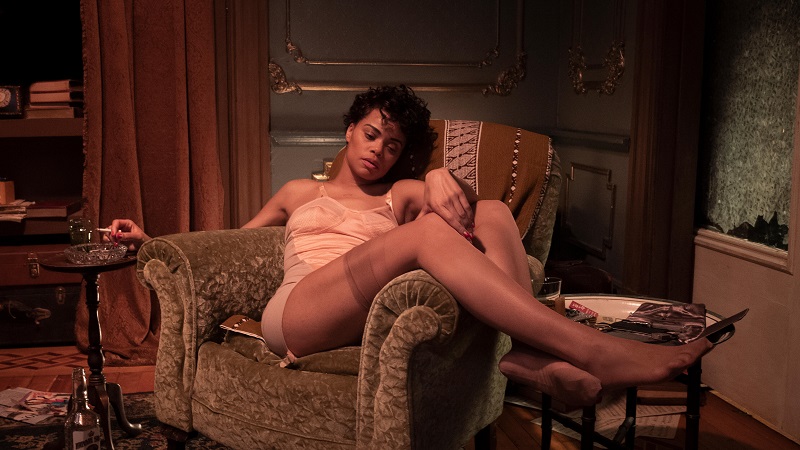
But… she believed in her voice. That voice was as unique and as powerful as they come. As is said in the music and film industry, “talent rises.” In her case, it shot through the ceiling. She also came along at a time when female (and people of color) artists were especially vulnerable to managers who took advantage of their clients in any manner you can think of, but Holiday was a different entity altogether.
That drug habit would hobble her and give the federal government a so-called low-hanging fruit to grab. As captured by Daniels in his film, it is both inevitable and tragic. Daniels is a fascinating filmmaker. Who else other than him would have thought that the story of a Butler could be so compelling? In the hands of Daniels (and his star Forrest Whitaker), the tale of the life of a White House butler for multiple administrations through some of America’s most turbulent years is downright inspiring. It is equally as much a story of the unshakable patriotic commitment of Cecil Gaines, as it is a study of America evolving through the eyes of a man who had a front-row seat to the entire evolution.
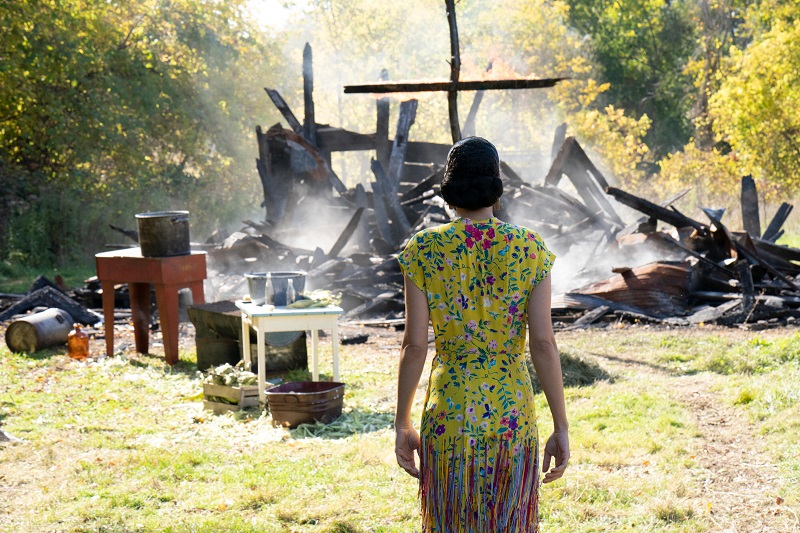
With Billie Holiday, Daniels has a subject-matter that is clearly close to his heart. His passion for the project is felt on every single frame. The problem with the film is that stellar directing and an otherworldly performance from your lead are not enough to fully appreciate the G-dly gifts of the Summertime singer. The film zig-zags frequently. In the process, the filmmaker has discovered a new-to-me means of robbing audiences of the vibrancy of a soul at the center of a true tale.
The United States vs. Billie Holiday doesn’t quite capture the impact that the heaven-sent vocal sensation and legend had on the world.
Perhaps Daniels could have tightened the picture a wee bit. It clocks in at 130 minutes. Normally, I have no problem with a film’s length. It’s just that there are quite a few shake-your-head moments that I fail to see why they had a need to be in the film. Perhaps it is Daniels’ stature. His achievements and their unspoken aura permeated the crews’ environment. Rather than a sense of camaraderie or cooperation, the sentiment was to let the master create his art.
Whatever the film’s issues, it has nothing to do with Day.
The actress and singer is an Emmy, Grammy, and NAACP Imagine Award nominee and a Hollywood Film Awards winner in 2017 for Song of the Year for her Stand Up for Something recording from the film Marshall. What she brought each day as Holiday on Daniels’ set had to serve as a lightning bolt of inspiration for everyone who had the fortunate grace to be in presence of such greatness and to witness it in real-time. That will light up a set and permeate throughout it during the entire shoot. She raises an average biopic to heights much higher.
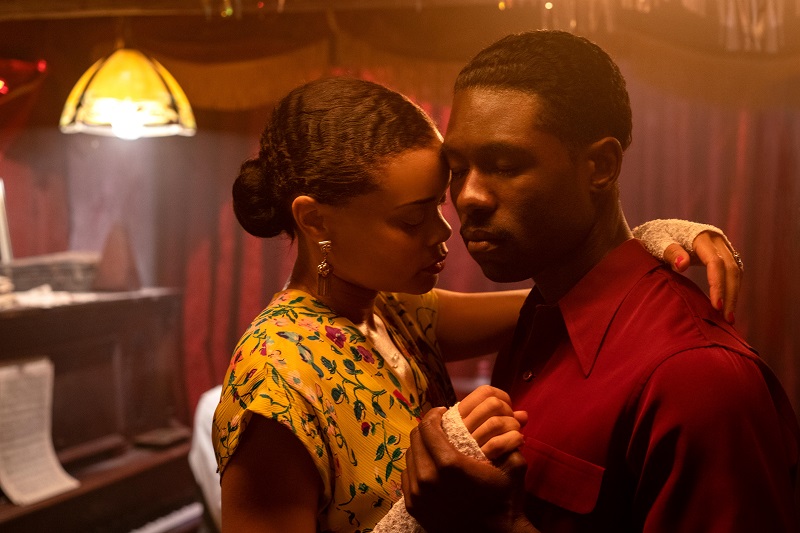
As a singer, the vastness of Day’s gifts seems to know no bounds. There are few that can even come close to capturing the vastness, intimacy, and distinctiveness that Billie Holiday brought to any recording session or live performance. Day does. As such, she could not have been a more pitch-perfect choice to inhabit Holiday’s highs and lows. A director once famously stated that it is easier to teach acting to a fab five of hardwood superstars than it is to teach basketball to a group of actors. The same can be said of singers and others who specialize in the artistic realm of possibility.
The thing is that is so astounding about what Day achieves in The United States vs. Billie Holiday is the actress is capturing and embodying a soul that is as renowned as a woman from that era can achieve. As such, the actress brings some of the minutest of nuances to a characterization that is hard to believe that this her first leading role—large screen or small. In the end, her performance adds up to a deeply personal portrayal of an American renaissance woman.
Daniels achieves something that is astonishing with his latest work. As she only lived a too-short 44 years on this planet, the director achieves the “big payoff” with the singing of Holiday’s hit song, Strange Fruit. The song details a lynching, something that was occurring in the South in America to the utter bewilderment of the rest of the world. The song was considered a threat to the “American Way of Life.” Those in power felt that it could lead to inciting riots and perhaps even a revolution. The manner with which Daniels manages to weave the song, its lyrics, and most importantly—its place in the American socio-political songbook—is nothing short of a cinematic miracle.
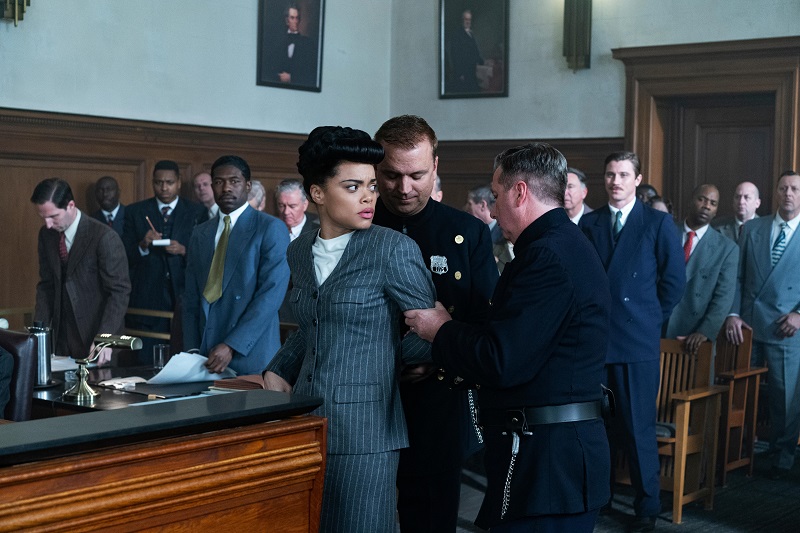
Obviously, it’s a powerful and important song. The way in which the filmmaker utilizes it in his film it is as if the track is the stitching to the patchwork that his view of America.
Grade: B-

